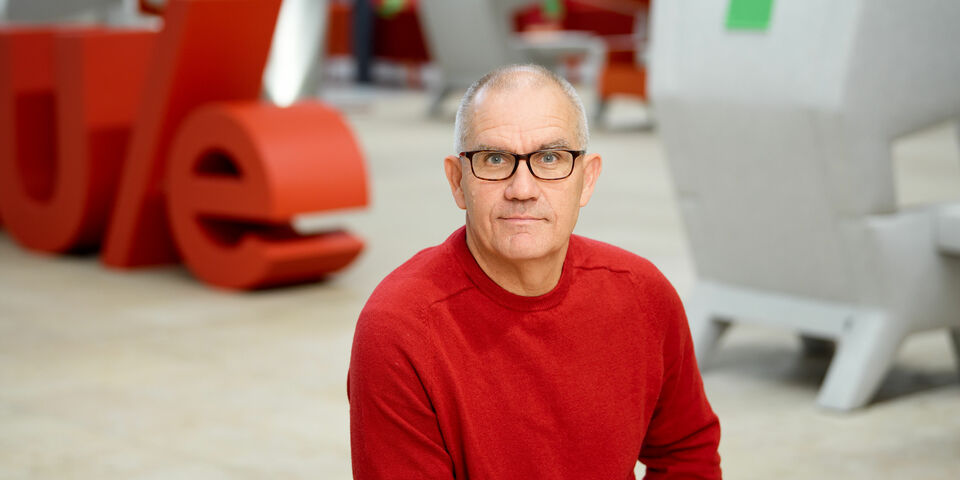Adopting a position
The academic world is seeking the right attitude to adopt towards Russia after President Putin's aggressive invasion of Ukraine. On the one hand, there is the question of how we can assist this beleaguered land. On the other, what ought our attitude be towards Russian students and academics here in the Netherlands and our contacts over there; they too appear to have been taken entirely by surprise by recent events.
A sticker campaign at Amsterdam's UvA supporting Ukraine that the board president Geert ten Dam joined, university campaigns to collect basic necessities, such as in Delft where goods can be dropped off at the editors' desk of our Delta media colleagues, calls by students to end ties with Russia. The war and its consequences are the center of attention.
Cursor spoke on Thursday with a Ukrainian student and doctoral candidate at our university, both of whom told heartrending stories of events their loved ones and family had heard about in their mother country. In the Eindhovens Dagblad newspaper, we read today that our university is investigating how a contract with the Russian gas company Gazprom can be terminated, if need be. Like many municipalities and other organizations in the Netherlands, TU/e entered into a five-year supply contract in 2019. And somewhere this week the Ukrainian flag will start flying next to our pond as a sign of solidarity.
The situation appears, as I am writing, only to be escalating further, bringing yet more tension to the whole question. In a situation like this, what can the Dutch academic community do? In a joint statement Friday, published on the site of the Universities of the Netherlands (UNL), the universities expressed their aversion to this war and called on ‘the academic communities in Russia who are speaking out against the invasion and who are bravely continuing to work towards peace, dialogue and open cooperation, to be embraced’.
A fine aim, but the question is whether it will have much impact. Sanctions that cut off Russia from the economic markets and from international payments, have a strong effect. Sending troops to the Baltic States and the western borders of Belarus and Ukraine, these are steps that should give Putin food for thought. But how academics will play a significant role in this conflict is unclear. Seeing in today's Volkskrant newspaper the coterie - ‘Putin's hard-line henchmen’ - with which the Russian president has surrounded himself, academics seem thin on the ground. Almost all of them are graduates of the same school: the KGB secret service in the Soviet era, then its successor, the FSB.
Indisputably, a show of solidarity and support from academic circles is a good thing. Without question for the Ukrainian students and employees here, but also for the academics with whom we have ties in that country. And let's make sure we continue talking with the Russian academics and students at our university. They too, without doubt, have been caught unawares by the events of recent days and are also worried about their family and friends back home. This group should no more fall victim to the reign of a man who in all likelihood they would rather not have seen hold office than the Ukrainians.


Discussion